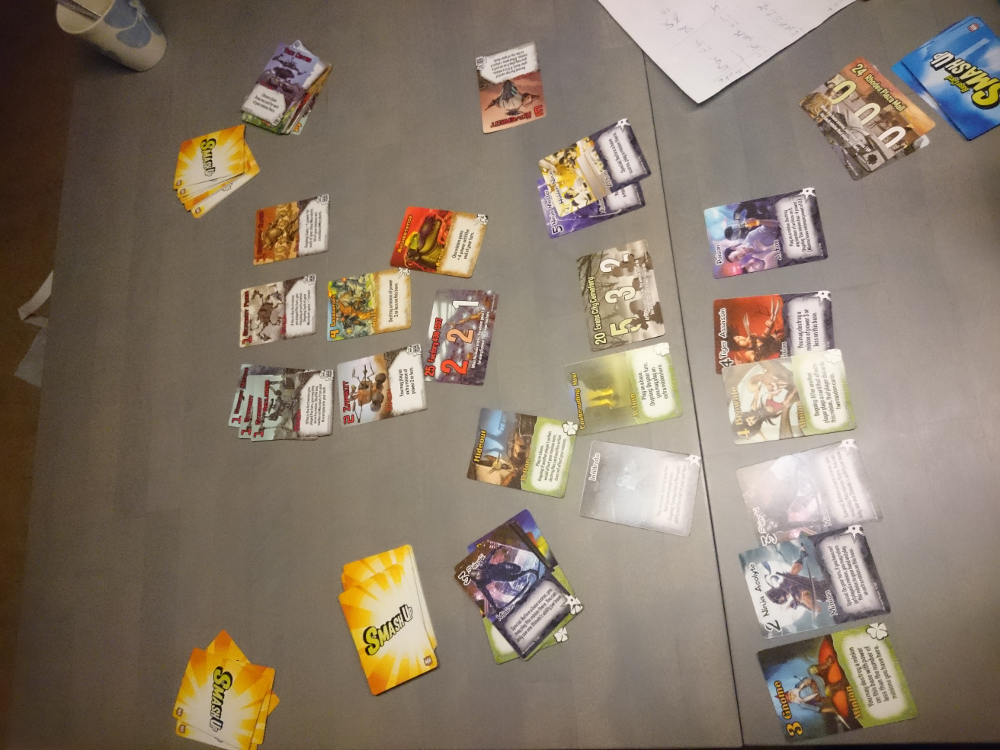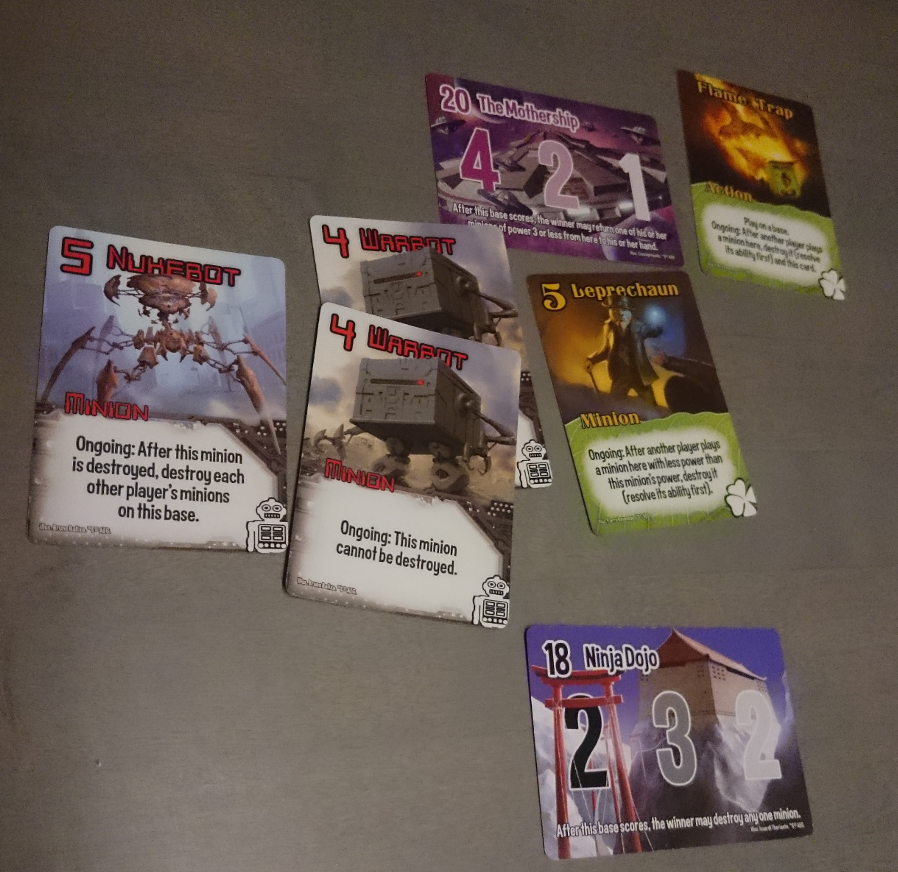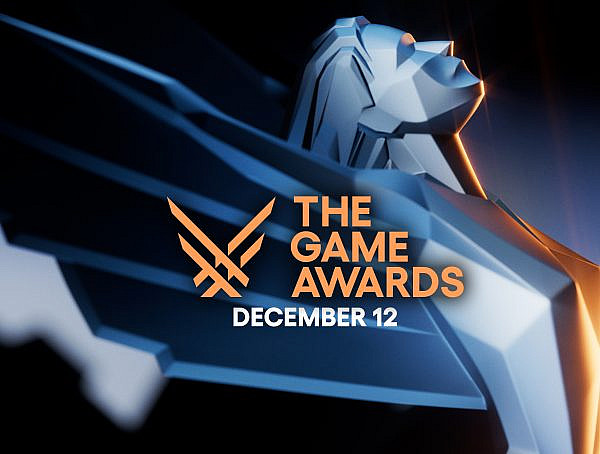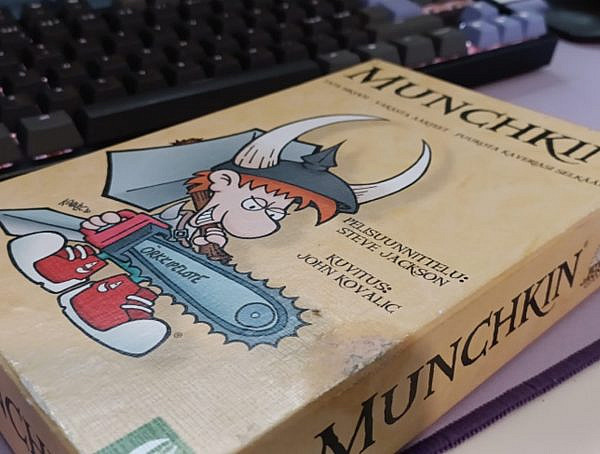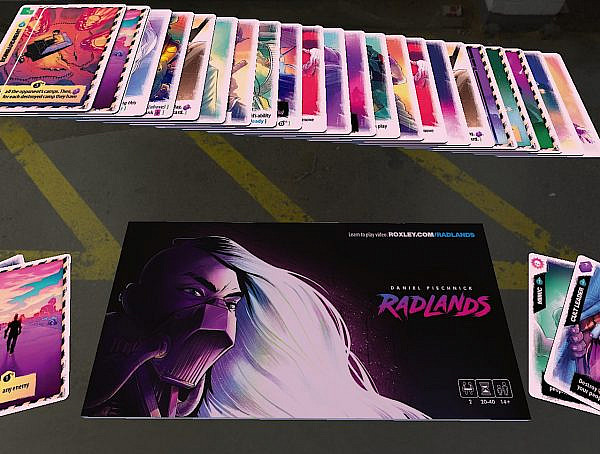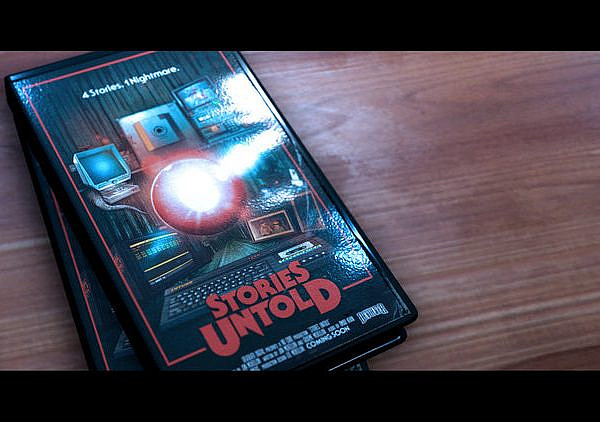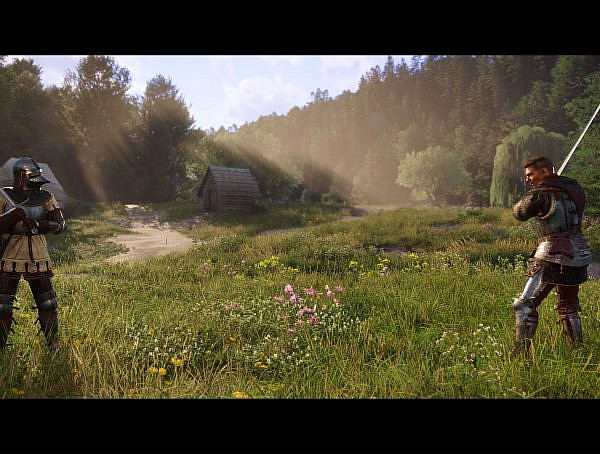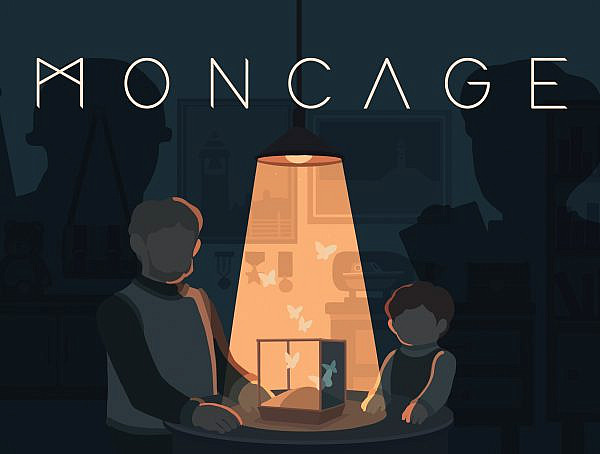Try to master your card deck and the weird combinations of scifi-fantasy factions
Smash Up is a card game that pits the players against each other, fighting for victory points awarded for conquering bases. The game lets you pick two factions from a restless collection including Zombies, Robots, Aliens and Dinosaurs. Randomizing the factions makes the game extremely fun and interesting, as the decks seem to be well-balanced.
At the beginning of the game, a set of base cards are played on the table. Players try to conquer them by placing enough unit cards on the base before anyone else, but the challenge lies in trying to outwit your opponents and anticipate what kind of card combos they have lined up. There were plenty of times when I felt I would win a base, only to get the base flooded with pirates and zombies at the last-minute. On the other hand, some victory points for bases are usually awarded for the runners-up as well, which means you may want to let an overwhelming force take a base and save most of your cards for other bases.
Each base is colour-coded to match a certain faction, and said faction will benefit more from winning the base than the others. This creates a tense, dynamic gameplay experience in which you have to figure out which base you will want to focus on, and guess which bases your opponents are going for. There are also unique rules for each base card, ranging from the possibility to acquire extra victory points or to remove cards from the table.
The cards in each deck are divided into minions and actions. Some minions are stronger than others, and many have special skills that can be used to surprise your opponent. Zombies rely on bringing minions back from the discard deck, while Ninjas try to strike when you least expect them. These cards may be boosted with actions cards that may allow you to play extra minions on your turn or from preventing your opponent from playing certain cards on a base, for example.
Games are relatively fast-paced depending on the number of players, although thinking about your next move may often take a while as you need to consider different outcomes and your opponent’s intentions. We only had two players in our test sessions, each lasting from 30 minutes to an hour, but more players will certainly make the game more difficult to control and, of course, more interesting.
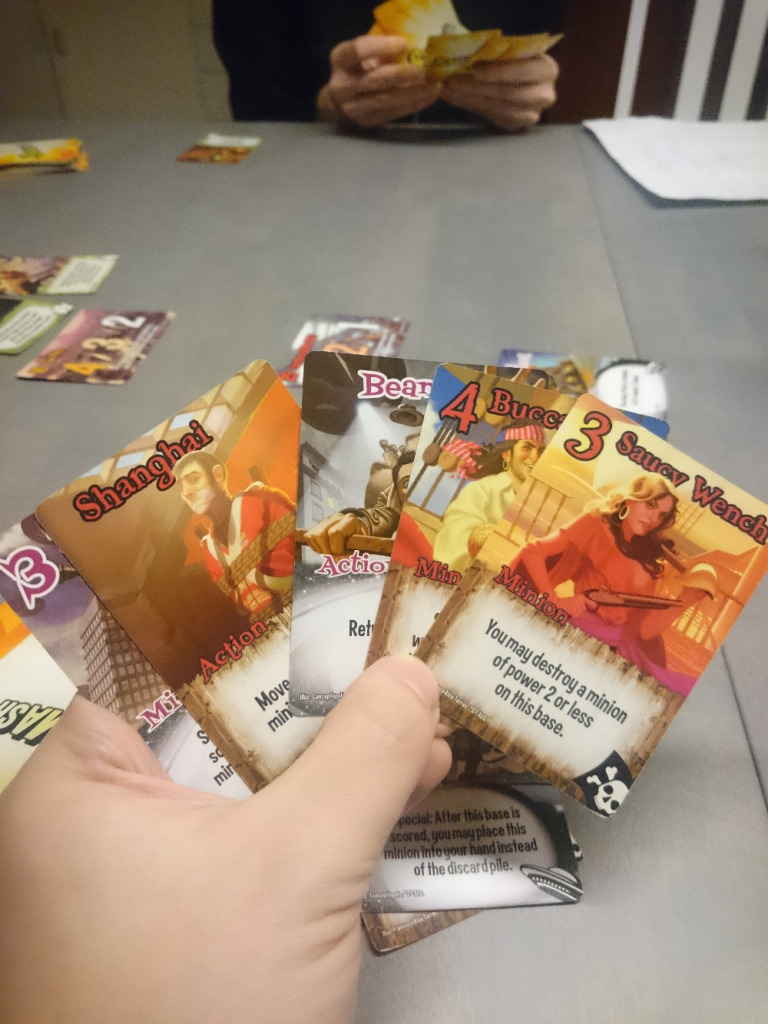 The game is easy to learn but it takes some experience and concentration to keep track of the events on the table, but the great card art and the number of different faction combinations make learning the game a fun process. It’s definitely recommendable for anyone looking for card-based battles, as the length of a single game allows for short sessions and tournaments lasting throughout the night.
The game is easy to learn but it takes some experience and concentration to keep track of the events on the table, but the great card art and the number of different faction combinations make learning the game a fun process. It’s definitely recommendable for anyone looking for card-based battles, as the length of a single game allows for short sessions and tournaments lasting throughout the night.
Publisher: Alderac Entertainment Group
Designer: Paul Peterson
Release Year: 2012
PEGI: N/A
You might also like
More from Game Reviews
Stories Untold – An Experimental Psychological Horror Adventure
Stories Untold is a narrative-driven horror adventure game and a truly remarkable take on the genre. The four episode anthology …
Kingdom Come: Deliverance II – A Sequel Worthy of a Knight
KCD II delivers a living, breathing medieval roleplaying game to its players. #RPG, #kingdomcome, #openworld
Moncage Review: A Puzzle Game with Mind-Boggling Optical Illusions
Solving a huge #optical_illusion #puzzle in a tiny cube to discover a dark, #emotional story of trauma







